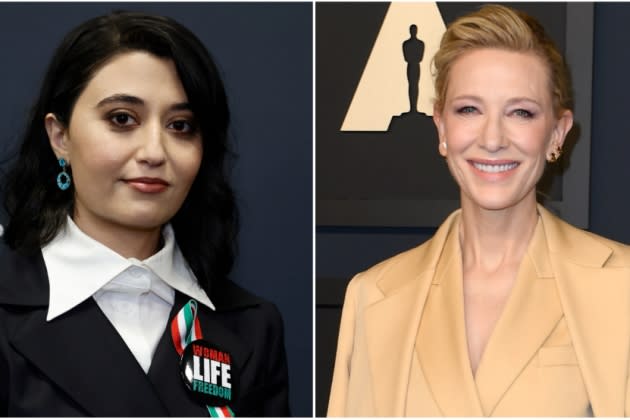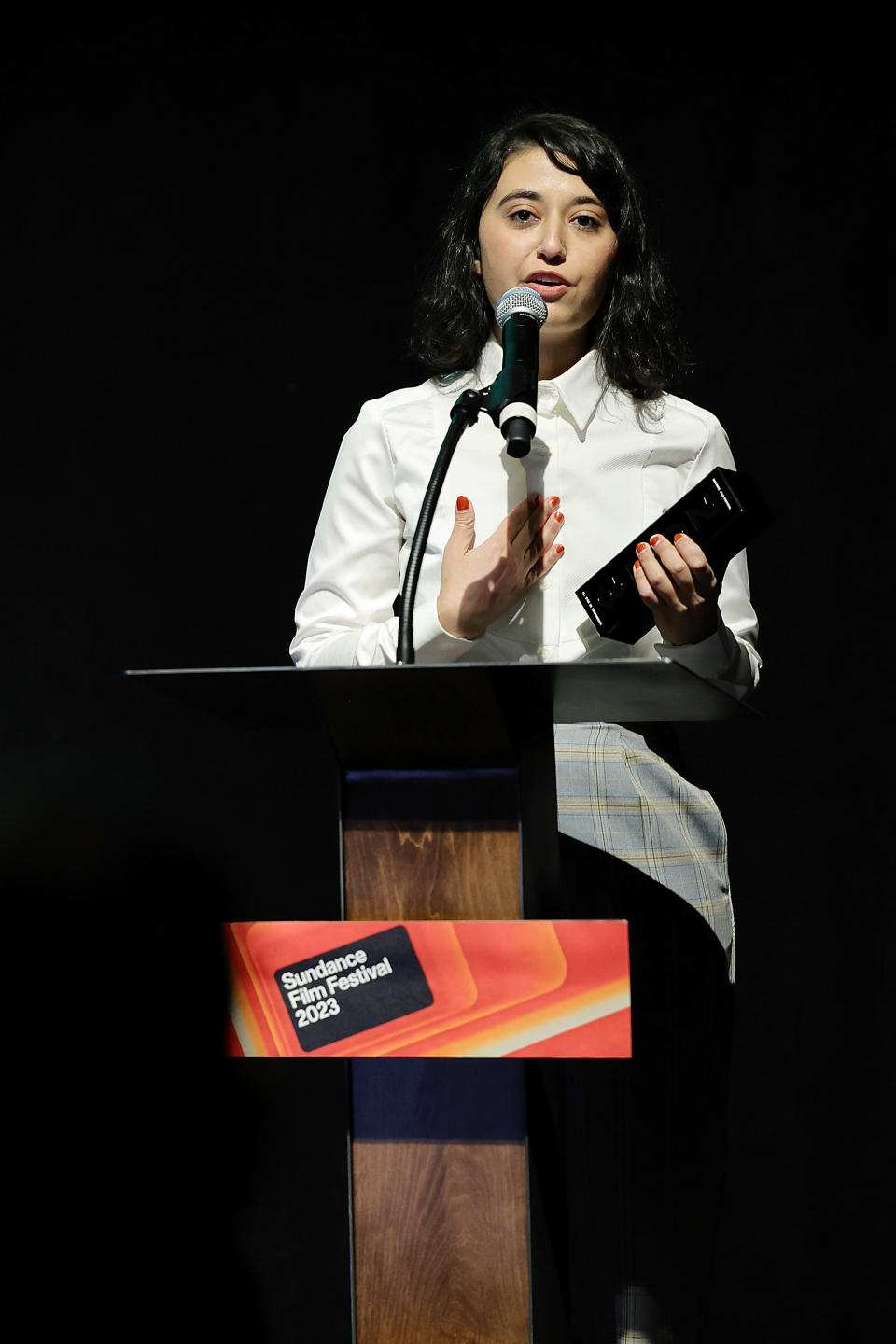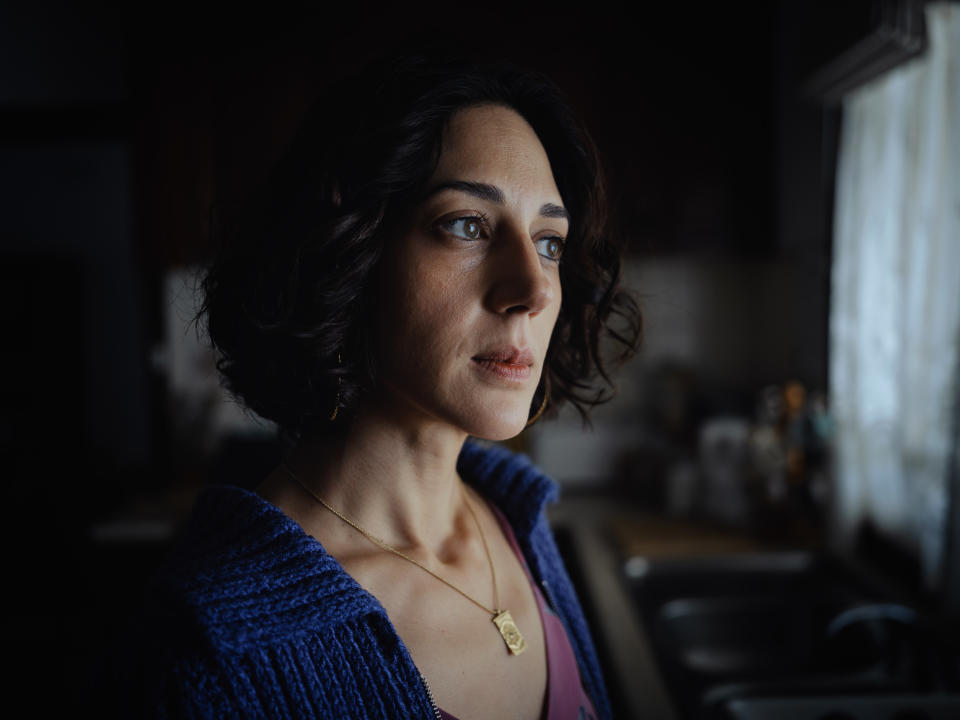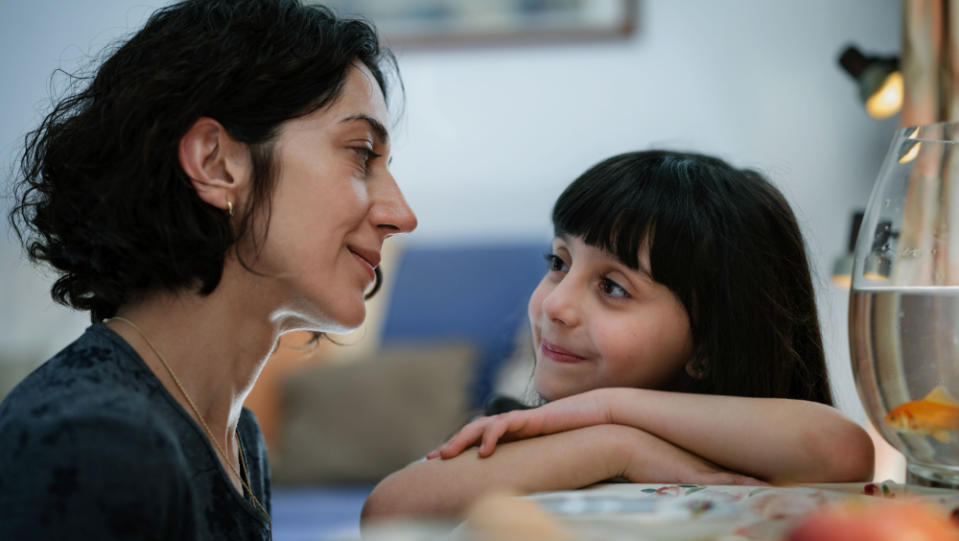‘Shayda’: Noora Niasari and Cate Blanchett on the Sundance Award-Winning Film’s Powerful Connection With Audiences (EXCLUSIVE)
- Oops!Something went wrong.Please try again later.
- Oops!Something went wrong.Please try again later.

It’s a Sunday evening in London in early February and two-time Oscar winner Cate Blanchett is freshly changed from an award show when she logs onto a Zoom with Noora Niasari, the writer and director behind “Shayda,” the powerful Sundance award-winning film executive produced by Dirty Films, the production company co-founded by Blanchett.
“I’m so happy. It’s fantastic. It’s great for Todd [Field], it’s so great for the film,” Blanchett says as she fields congratulations on accepting the London Critics Circle’s best actress prize. “And I just read that Viola Davis became an EGOT!”
More from Variety
Oscars Predictions: Best Actress - Cate Blanchett and Michelle Yeoh in Race Too Close to Call
'Tár' Isn't the Frontrunner, But Can It Win More Than One Oscar?
'The Banshees of Inisherin,' 'Tár' Lead London Critics' Circle Awards
The topic of awards is the conversation du jour this time of year because awards are capital in the entertainment business — and Blanchett knows a thing or two about this topic, with eight Oscar nominations to her name. Ultimately, the accolades help a film reach audiences far and wide. In the case of “Shayda,” for example, winning the World Dramatic Competition’s audience elevates the film from an intimate production that might’ve only sparked in Australia to a global platform, especially now that it has a major distributor.
Variety can exclusively announce that, following the film’s successful Sundance debut, Sony Pictures Classics has acquired all media rights in North America, Latin America, Benelux, Eastern Europe, Portugal, the Middle East and Turkey in a deal negotiated with United Talent Agency (The agency also represents Niasari, alongside Granderson Des Rochers, LLP.)
HanWay Films will be selling the remaining international territories and screening “Shayda” to buyers in the upcoming EFM. Metropolitan has come on board as the French distributor. Local distribution in Australia and New Zealand will be handled by Madman Entertainment.
“I have held the deepest admiration for Sony Pictures Classics since childhood,” Niasari says. “For my debut feature to be distributed by them is a dream. I know they will set the stage for a wonderful release, so that audiences worldwide can experience the emotional depth and power of ‘Shayda.’”
Sony Pictures Classics adds, “With ‘Shayda,’ Noora Niasari makes an impressive feature debut. Her characters are beautifully relatable and her relationships formed with honesty, humanity, and the warmth that can come from family and community. It is our pleasure to bring this story and Noora to audiences everywhere.”
Based on the Iranian Australian filmmaker’s personal experiences, the film tells the story of Shayda (Zar Amir Ebrahimi, who won Cannes’ best actress prize for “Holy Spider” in 2022), an Iranian woman living in Australia in the 1990s who finds refuge in a women’s shelter with her 6-year-old daughter, Mona (Selina Zahednia). Having fled her husband, Hossein (Osamah Sami), and filed for divorce, Shayda struggles to maintain normalcy and create a new home for Mona. Buoyed by the approach of Nowruz, the Persian New Year, Shayda tries to forge a fresh start with new and unfettered freedoms. But when a judge grants Hossein visitation rights, he reenters their life, fueling Shayda’s apprehension that he’ll attempt to take Mona back to Iran. The film, which features both English and Persian dialogue, also stars Leah Purcell, Jillian Nguyen, Mojean Aria and Rina Mousavi.

While winning the audience award was “incredible” and a “surprise” for the first-time feature filmmaker, there was an element of the win that made sense. “I felt how deeply the audiences connected with the film at each and every Q&A,” Niasari explains.
By her count, there were seven discussions following screenings of the film. “It was amazing to me how many different types of people connected with the film different ages, different backgrounds, not just Iranians,” she notes. “It just shows how much of a universal story it is. I’m so grateful that that we won the award, but also this chance to connect with people.”
While each interaction was unique, there was a particularly beautiful moment during one of the Salt Lake City screenings, when a woman who worked in women’s refugees in Utah gifted Niasari a hand-knitted scarf.
“She took the scarf and put it over my neck at the end of the screening and thanked me for telling this story,” Niasari recalls. “There was also a young guy who was half-Iranian at the world premiere. He was shaking and still sobbing at the end of the screening; he was so grateful to feel seen and to feel that connection to a film that he hadn’t really felt before. It’s been a very cathartic experience like both for me, for Zar, for my mom and for audiences.”
Blanchett cuts in, asking, “Was your mom there? How did she go with it all?”
“She did so well. She was fielding questions at the Q&A,” Niasari replies. “I really made a point of bringing up all the real-life inspirations to the stage and she loved answering the questions. She was very confident on stage and told me she had the time of her life. By the time we were saying our goodbyes, she was so emotional, and so grateful, and so happy with it.”
The journey to Sundance began five years ago when Niasari asked her mother to write a memoir to help fill in the gaps of her childhood memories, since she was only five years old when her mother fled an abusive relationship — and their entire community — to raise Niasari on her own in Australia. With those recollections in hand, the filmmaker began to draft the script that would become “Shayda,” tracking her mother’s journey to independence.

When Niasari finished writing the screenplay in May 2021, she posted the cover page to Instagram. “After three years of writing and dreaming, the screenplay for my debut feature is done!” she wrote. “Excited for the next steps!” By May 2022, Ebrahimi had been cast as Shayda, the proxy for her mother. Filming wrapped in August, after 31 emotional days in production. Niasari’s mother was on set sparingly, but she does have a cameo in the film, during a scene at the Norwuz celebration. The character is seen dancing, (which the filmmaker says brings her mother great joy in real life) and she locks eyes with the young Mona. Watching the moment from behind the monitor felt somewhat meta, given that the young girl is a proxy for herself.
“That’s something that’s quite remarkable and brave that you did as a director — you so openly and generously gave of yourself and your personal stories to the actors and to the people that you’re making the film with,” Blanchett notes. “They had access to you and your mother; then, you really trusted them to bring their own points of view to it.”
As a result of Niasari’s “brave and bold” act of exposing her personal history, she explains, the film has a “timeless” aspect to it, connecting this 90’s-set story to conditions in present day.
“That is the power of the film,” Blanchett continues, referencing the woman in Utah who gave Niasari the scarf. “[‘Shayda’] is so culturally specific, and of that time. It is not only the hideous, horrible, horrific events that are now unfolding that make this film more timely and more urgent, but it’s also because, between you and your cast, you’ve created this sense of being a timeless universal struggle. To me, that’s what the audience award really spoke to — that particular connection that you’ve made across time.”
Thanking Blanchett for her kind assessment, Niasari replies: “There’s nothing more that a filmmaker could want than to make that connection across cultures, across time and across all these barriers. What I wanted to do was create a bridge.”
“Shayda” is an Origma 45 production, the film is produced by Vincent Sheehan and Niasari, in association with Dirty Films, Parandeh Pictures, and The 51 Fund, and executive produced by Blanchett, Andrew Upton, Coco Francini, Caitlin Gold, Lindsay Lanzillotta, Lois Scott, Naomi McDougall Jones and Nivedita Kulkarni.
It received major production investment from Screen Australia in association with The 51 Fund and was financed with support from VicScreen and the Melbourne International Film Festival (MIFF) Premiere Fund.
Blanchett and Dirty Films, which has a slate full of culturally-rich stories supporting its focus on global impact, boarded the film thanks to Sheehan, whom Blanchett had worked with on 2005’s “Little Fish.”
“He said you’ve got to see this emerging filmmaker’s work,” Blanchett says of Sheehan’s pitch, before turning to Niasari to praise her directly. “We were blown away by your shorts — the connective tissue between them, but also how visually different they were.”
Then, upon reading the script for “Shayda,” Blanchett was profoundly moved.
“Even though my story is so profoundly different from yours — not only culturally and geographically, and I’m a lot older than you are, but being raised by a single parent, all of those struggles and my relationship to my mother, it brought all of that stuff up,” she explains. “And without, in any way, sentimentalizing that relationship, it spoke to the primacy of [motherhood], and to the quiet heroism, that a lot of women — whether they be born in Tehran, Melbourne, or wherever — there are often invisible struggles that are somehow not brought to the screen in a way where they can connect to a bigger political struggle.”

Blanchett, of course, is referencing the women-led movement in Iran, sparked in last fall, when 22-year-old Mahsa Amini died in police custody, after having been arrested by Tehran’s morality police for wearing a hijab “improperly.” Amini’s death sparked a revolution in Iran, now coined the “Woman, Life, Freedom” movement, which Niasari paid tribute to on the red carpet in Park City, wearing a pin bearing the slogan.
Because the film offers Shayda’s — and Niasari’s — domestic experiences as a window into the larger cultural conversation, Blanchett is hopeful that the project will create a bridge toward greater understanding of what this movement is about, as well as the prevalence of the sexual violence that women experience no matter what language they speak or where they’re from.
“When you’re not in direct geographic relationship to the conflicts in a culture that is not your own, you often don’t become fully aware of them until the volcanic eruption happens,” Blanchett says. “What is beautiful about the film is that it allows us to look back slightly back in time [and] it allows us to sort of see the incremental ways that that horrendous abuses of human rights can come about.
She adds: “Films like this, they’re not instructional. It’s heartwarming, heroic and ultimately triumphant. You’re not going there for a history lesson, but it does allow you to quietly reflect.”
In an interview ahead of the Sundance premiere, Niasari told Variety that she’d fallen into a depression after filming wrapped, from carrying the emotional weight of the experience of unveiling her past.
“I found it very difficult to be productive due to the emotional toll of the filming process. I needed one or two weeks off,” she said. “I’d cry a lot and process, but my editor was so beautiful in creating a safe space and creating a light energy.”
But when the revolution started in Iran, she found “a renewed purpose” to finish the film, spurred by the women of her homeland and their continued protest. Now, looking back on the experience of debuting the film to such a rapturous response, during this moment, Niasari says everything feels “aligned.”
“I couldn’t ask for a better world premiere and team and cast and platform to be able to speak to what’s happening in Iran and the fact that Shayda is just one of millions of women fighting for their freedom fighting for their independence,” Niasari concludes.
Manori Ravindran contributed to this report.
Best of Variety
Sign up for Variety’s Newsletter. For the latest news, follow us on Facebook, Twitter, and Instagram.

